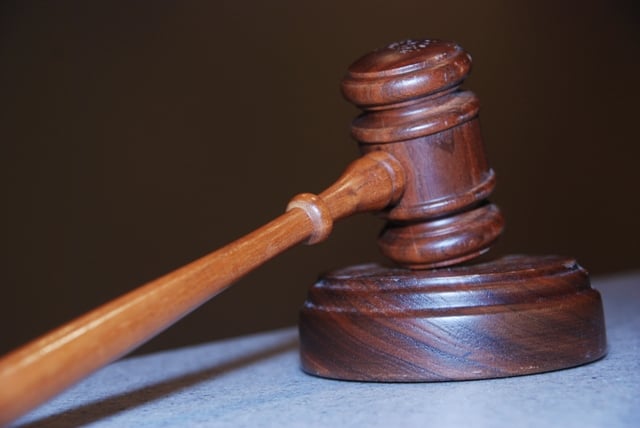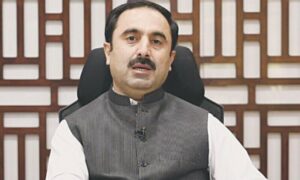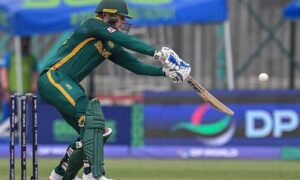Five judges of the Islamabad High Court (IHC) on Thursday approached the Supreme Court of Pakistan to reclaim their seniority in light of changes to the ranking following the transfer of three new judges, particularly Justice Sarfraz Dogar from the Lahore High Court who became the senior puisne judge replacing Justice Mohsin Akhtar Kayani.
The judges – Justice Mohsin Akhtar Kayani, Justice Tariq Mehmood Jahangiri, Justice Babar Sattar, Justice Sardar Ejaz Ishaq Khan, and Justice Saman Rafat Imtiaz — filed a constitution petition in the apex court through lawyers Muneer A Malik and Barrister Salahuddin Ahmed.
They requested the top court to declare that the president does not have unfettered and unbridled discretion to transfer judges from one high court to another, under Article 200(1) of the Constitution, without a manifest public interest, and in a manner that hampers the principles of independence of judiciary and separation of powers.
Besides Justice Dogar, the other two judges who were transferred to the IHC under Article 200 of the Constitution are: Justice Khadim Hussain Soomro and Justice Muhammad Asif.
Commenting on the content of the petition, Abdul Moiz Jaferii advocate says that it tells you a lot about the health of a country’s judiciary when serving judges petition their own Supreme Court. “Such are the times. This is a necessary intervention by judges where the bars around the country have let them down.”
He further states that in this atmosphere of cooption and coercion, the IHC justices continue to fuel the hope of independence which they themselves ignited: by writing to explain the interference in their judicial work by the executive. “The silence of the Supreme Court on that issue is deafening. Let’s see what they do here.”
Former additional attorney general Tariq Mahmood Khokhar says that while the transfer of a judge from one high court to another is constitutionally valid, it should never be used as a form of punishment either for the judge being transferred or for the high court receiving the judge, at both the institutional and individual levels.
“Such transfers must not be employed as a tool for controlling or undermining a high court or its judges, as such actions would constitute mala fides and an abuse of power.”
Khokhar states that the recent transfer of three high court judges, alongside the appointment of one as acting chief justice, has led to both a quantitative and qualitative shift. “Through the formation of benches and the allocation of cases, the independence and impartiality of these judges are in danger of being effectively undermined. They will increasingly be excluded from sitting on important benches hearing significant cases, relegated instead to less consequential matters.”
“This is the plight of the Islamabad High Court, where the denizen judges have seen their seniority surpassed, their eligibility for the office of chief justice relegated, and their roles marginalised. Consciously or not, the transfers and appointment of an acting chief justice has eroded judicial independence,” he adds.
Khokhar also noted that crucially, an independent high court and its independent and impartial judges have been punished.
Petition
The five judges, in their petition, tell the Supreme Court that, “there seem to be efforts made to undermine the credibility of the six judges at the IHC. There has been a concerted campaign against the judges, maligning them on all forums”.
It is also stated that the Supreme Court, cognizant of the executive’s attempts to undermine independence of the judiciary, in the Al-Jehad Trust case, presciently noted that the transfer powers of the president under Clause (1) of Article 200 of the Constitution, ought not, under the Constitution, be deployed in a manner to punish the transferred judge.
But the concern regarding independence of the judiciary remains central, even when the transfer power under Article 200(1) is invoked to punish serving judges of the high court to which the transferred judges have been appointed.
The petition raises vital questions as to the interference into the functioning of the IHC, through the invocation of powers, under Clause (1) of Article 200 of the Constitution that has never been used in this manner before in the history of Pakistan.
The transfers from other high courts, if construed to be permanent, bypassing the requirement of taking a fresh oath mandated by law, and upending the inter-se seniority of the IHC, also defeat the very conception of federalism.
The catapulting of a judge at the 15th seniority at the Lahore High Court to an acting chief justice of the IHC, raises important questions of how the transfer power, under Clause (1) of Article 200, may have been used as a way to punish and sideline the already serving judges at the IHC.
It also raises questions as to the steps hastily taken to disempower the already serving judges of the IHC, wresting the administrative control out of their hands, and bestowing it on the newly transferred judges, with no administrative experience in their own relevant high courts.
This speaks to the arbitrary exercise of power. In doing all of this, the Constitution, its undergirding principles, judicial norms and conventions, have all been disregarded.
The petition further states that the history of Pakistan includes vast chapters when authoritarian regimes have held constitutional principles in ‘abeyance’ and undermined judicial independence.
It is also a matter of historical record that during such dark times, emasculation of the judiciary may not have been possible but for the co-option of men in robes who had sworn oaths to protect and defend the Constitution. But instead of abiding by their oaths, they chose to articulate ‘doctrines of necessity’ justifying the mutilation of the Constitution and its principles.
“The jurisprudence of superior courts in such times rationalized and normalised the executive’s entrenchment of power. And only when the power of the reigning autocrat began to wane did judges spruce themselves up and declare that the ‘doctrine of necessity’ was dead and buried.
“It is a matter of historical record, that unfortunately doesn’t project a flattering light on the judiciary’s role in protecting the Constitution and fundamental rights, that superior courts have taken a strong position on the independence of the judiciary only once the threat of executive’s overreach has momentarily receded.
It is also stated that if the reason for the transfers is that there must be greater representation of different federating units in the IHC, then why could that concern not be addressed through the direct appointment process under Article 175A?
“Even otherwise, it is hard to fathom what the relevant considerations were for transferring judges to the IHC. For instance, was there a requirement of a judge of particular subject-matter expertise in the IHC? Were relevant subject-matter expertise of the transferee judges considered? Were all judges from other High Courts considered to form a pool from which to transfer judges to IHC? Was it considered as to what the holistic make-up of IHC would be with regards to subject-matter expertise, with and without the transfers?
The petition states that it is not clear if other judges higher in seniority than the transferred judges in their respective high courts were considered for transfer to the IHC. For instance, a judge ranked at No 15 of the seniority list at the Lahore High Court has been transferred to the IHC.
Were all those above him in seniority considered for such transfer? On what basis exactly were the respected judges transferred to IHC earmarked for such transfer.
It is also contended that the issuance of the administration committee notification and DPC notification are contrary to the 2011 Service Rules, which provides the definition of an Administration Committee.
“The Administration Committee under the 2011 Service Rules has to comprise of the Chief Justice and two senior judges. Senior judges, meanwhile, have been bypassed. The Administration Committee Notification also is not in accordance with Lahore Rules and Orders, since the Administration Committee there has been specified to comprise seven members, with the Chief Justice and the Senior Puisne judge as ex-officio members.”
- Desk Reporthttps://foresightmags.com/author/admin/











